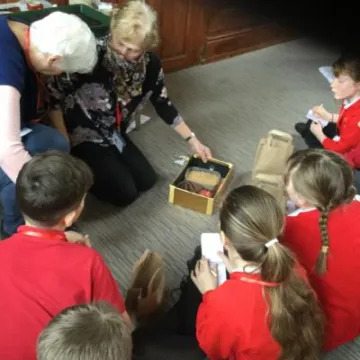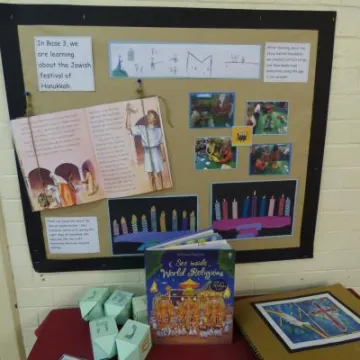Religious Education
Mrs Turner is our RE Subject Lead. Our RE Curriculum Plan 2023 24 can be found at the bottom of the page.
At Wrenbury Primary School, our Religious Education (RE) curriculum allows the children to explore religions, cultures and world views. Religious Education is an important part of the school curriculum and is taught relevant to the child's stage of development and experience. We seek to provide a clearer idea of what religion is about, the importance that it plays in many people's lives and how that faith is expressed in their daily lives and routines.
Intent
- For all children to form their own opinions about religious beliefs and customs and that they develop an understanding and tolerance of people who have a faith or have no faith.
- For children to enjoy learning about religion because it is taught in a stimulating and interesting way that arouses their curiosity and develops positive skills and attitudes.
- For children to develop a sense of awe and wonder about the world around them.
- To help pupils understand some of the impact of religion throughout the world, its influences on the lives of individuals and communities and its effect on the cultural diversity of their own and other communities and societies both presently and in the past.
- To support pupil's spiritual, moral, social and cultural development by encouraging self-awareness and self-respect.
- To help support the children's social and moral development by encouraging a positive attitude towards, and valuing the beliefs of, others, however different from their own.
- To help the children to develop knowledge and understanding of Christian and other major religions in Britain as a whole and in the local community.
Implementation
RE is taught mainly as a discrete subject at Wrenbury Primary School following the Cheshire East SACRE Religious Education Agreed Syllabus, besides the Diocese of Chester planning and Understanding Christianity units. However, there are times when RE is woven into the school's cross-curricular Learning Journey planning. The half termly units are covered through using an enquiry question each half term.
In EYFS, children are taught RE through the area of Understanding The World. The Foundation Stage forms the basis of children's future learning and understanding and therefore should begin with children's own experiences and feelings, particularly around 'special times, people, places and objects/symbols'. Children start by looking at Christianity and main religious festivals, e.g. Diwali.
In KS1, Christianity is the main focus of the teaching, with Judaism being taught for 1 term or the equivalent and a free choice of enquiry for half a term.
In KS2, Judaism is built on, whilst Hindu Dharma and Islam are introduced alongside free choices of enquiry.
Children are encouraged to openly discuss their understanding, personal experiences and opinions and attitudes. They are given time to reflect on what the religious / non-religious worldview ideas and concepts mean to them to promote their own spiritual growth and development.
The teaching is initiated with an enquiry question that promotes the learning of the half termly concept. A variety of teaching methods are used to teach RE at Wrenbury Primary School including role play/drama, stories, music, video, research, IT, exploring objects and artefacts. Visitors to school are encouraged to give children the opportunity to listen to and ask questions about another person's experiences of living/celebrating through different faiths. Children also visit St Margaret's Church in the village and Broomhall Chapel in the school's locality for a range of enrichment activities linked to their core learning of Christianity across the school year. Visits and visitors are also organised to enrich the teaching and learning in RE.
Impact
High quality work will showcase the children's understanding of the main religions of the world and the non-religious world view. This evidence will be seen through using the correct vocabulary, explanations and respectful opinions, as well as cross curricular evidence, for example, religious and cultural art work, drama, craft and presentations. Children in school will be able to talk confidently about their learning in RE and consider and share their own views and opinions.
Whilst Collective Worship is separate to the teaching of RE, it may be used to enhance the RE curriculum.
Contact Us
admin@wrenbury.cheshire.sch.uk
01270 260656
Wrenbury Primary School
Nantwich Rd
Wrenbury, Nantwich
Cheshire
CW5 8EN


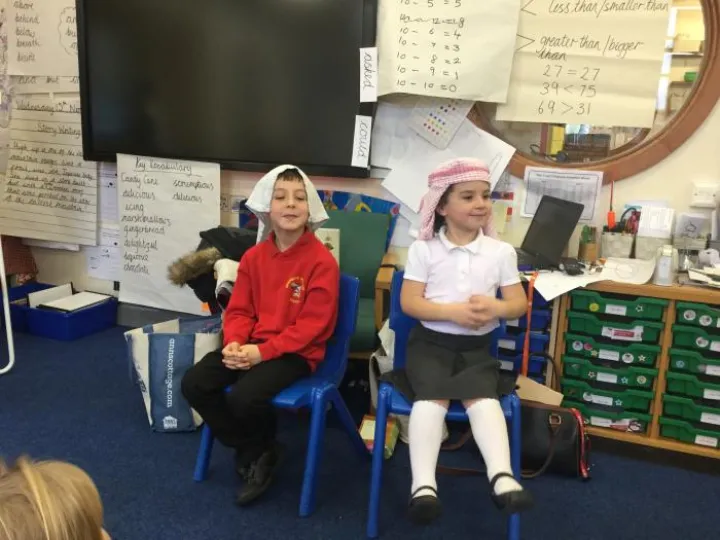
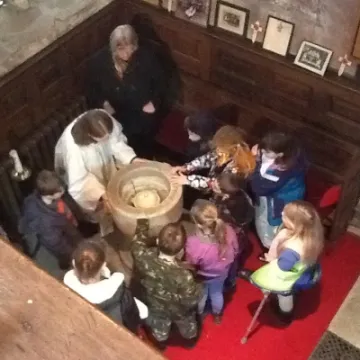
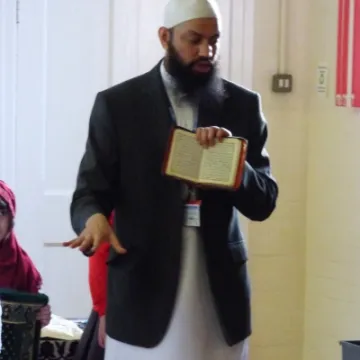

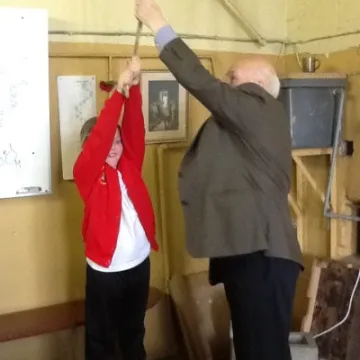
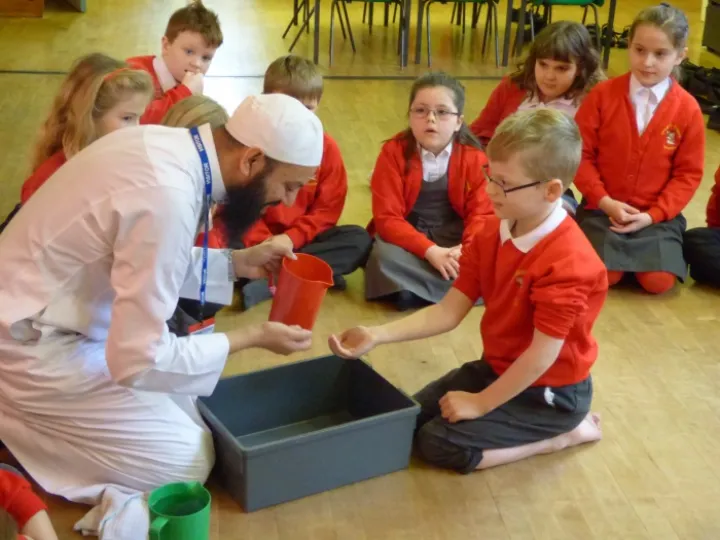
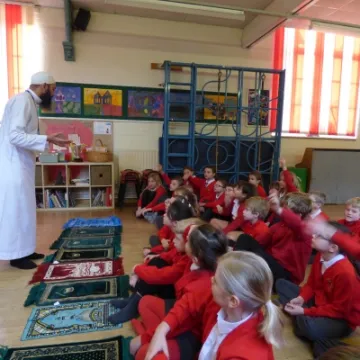
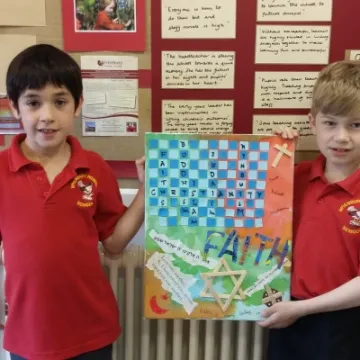

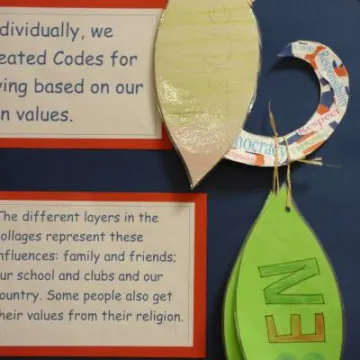
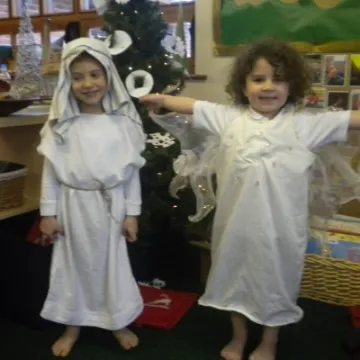
![IMG_1166[1]](https://l4.tm-web-02.co.uk/lib/image-square-wp1-285410.webp)
